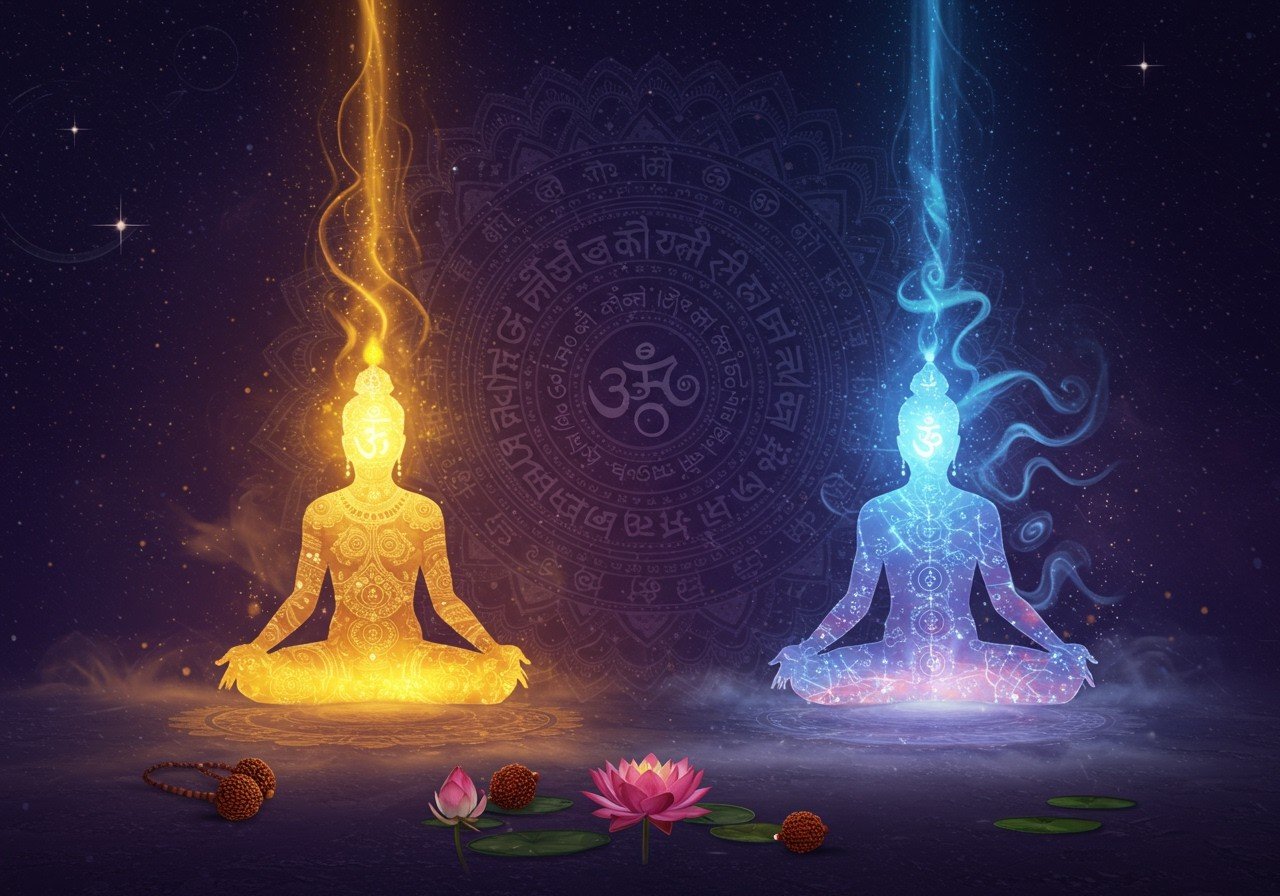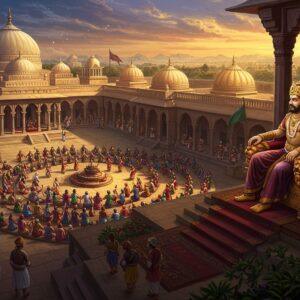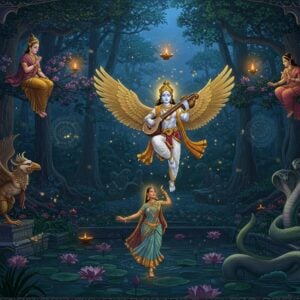
In Hindu philosophy, the concepts of Moksha and Mukti hold immense spiritual significance. These terms, often used interchangeably, represent profound states of liberation and self-realization. Their origins trace back to ancient Indian scriptures, including the Upanishads and the Bhagavad Gita. Understanding these concepts is crucial for those seeking spiritual enlightenment and a deeper connection with tradition.
Introduction to Moksha and Mukti
Moksha and Mukti are central spiritual goals within Hinduism. Moksha signifies liberation from the cycle of birth and death (samsara). It’s the ultimate goal, symbolizing self-realization and union with the divine. Achieving Moksha involves a multifaceted approach encompassing knowledge, devotion, and ethical conduct.
Several paths lead to Moksha:
- Jnana Yoga: The path of knowledge, emphasizing self-inquiry and wisdom.
- Bhakti Yoga: The path of devotion, focusing on love and surrender to the divine. This path often involves rituals, prayers, and chanting.
- Karma Yoga: The path of selfless action, performing duties without attachment to results. This path emphasizes ethical conduct and service to others.
Mukti, similarly, represents liberation but emphasizes freedom from worldly desires and the ego. It signifies a state of freedom attainable within one’s lifetime. This liberation is often pursued through:
- Meditation: Stilling the mind and cultivating inner peace through focused attention. Various meditation techniques exist, each with unique approaches to achieving mental clarity.
- Renunciation: Detachment from material possessions and worldly pursuits. This involves simplifying one’s life and focusing on spiritual growth.
- Surrender to a Guru: Seeking guidance from a spiritual teacher. A guru provides wisdom, support, and direction on the spiritual path.
Mukti underscores detachment and surrender to divine will. It plays a vital role in various spiritual traditions, promoting inner peace and balance. At poojn.in, you can find a variety of products like malas, incense, and spiritual texts to support your spiritual practices.
Defining Moksha
Moksha is about breaking free from samsara, the continuous cycle of life, death, and rebirth. It’s regarded as the highest purpose in life. Different paths guide individuals towards this ultimate goal:
- Knowledge (Jnana): Gaining a deep understanding of the true nature of reality and the self. This path involves studying scriptures and engaging in self-inquiry.
- Devotion (Bhakti): Cultivating love and devotion towards a chosen deity. This path emphasizes prayer, chanting, and other devotional practices.
- Ethical Actions (Karma): Performing actions with selfless intention and detachment from results. This path involves living a life of service and integrity.
Defining Mukti
Mukti signifies release from the limitations of desires and the ego. It centers on detachment and surrender to divine will. In contrast to Moksha, which is the ultimate liberation, Mukti can be experienced during one’s lifetime. It encompasses practices like meditation and renunciation, cultivating inner peace and equanimity.
Differences Between Moksha and Mukti
While both Moksha and Mukti aim for liberation, their scope differs. Moksha is all-encompassing, referring to complete liberation from existence within samsara. Mukti, on the other hand, can represent freedom from specific desires, attachments, or limitations. Different Hindu schools of thought perceive these terms uniquely, leading to varied interpretations and ongoing discussions about their nuances.
Similarities Between Moksha and Mukti
Both Moksha and Mukti share the common goal of liberation, albeit with different focuses. They both emphasize transcending the limitations of the ego and realizing one’s true self. Practitioners on both paths strive to overcome ignorance and attain a state of lasting inner peace and freedom.
The Role of Rituals and Practices
In pursuing Moksha and Mukti, rituals and practices play a significant role. These practices, such as meditation, yoga, and prayer, form the core of spiritual discipline, helping individuals align their minds and souls towards liberation. Find your guru for guidance in your spiritual journey.
Festivals and Pilgrimages
Festivals like Diwali and Holi offer more than just celebrations; they provide opportunities for spiritual reflection and renewal. Pilgrimages to holy sites like Varanasi or Rishikesh deepen spiritual understanding and connection. Learn more about spiritual journeys with our Kumbh Mela guide.
Community Gatherings
Engaging in community gatherings fosters a sense of belonging and shared purpose. These gatherings provide platforms for sharing wisdom, experiences, and support on the spiritual path.
Online Convenience
In today’s digital age, online platforms like poojn.in provide convenient access to authentic ritual items, supporting individuals in integrating traditional practices into their daily lives. This accessibility ensures that spirituality remains an integral part of modern living.
How Poojn.in Supports Your Spiritual Journey
At Poojn.in, we offer authentic puja items that can aid your journey towards Moksha and Mukti. Our carefully curated selection includes:
- Pure copper and brass items for daily worship.
- Traditional dhoop and agarbatti for sacred rituals.
- Genuine rudraksha malas for meditation.
- Pure ghee and oil lamps for aarti.
- Sacred texts and spiritual books.
- Complete puja kits for various ceremonies.
As India’s largest Dashakarma Bhandar, we ensure that all items meet traditional standards and are blessed before shipping. Our products help maintain the sanctity of your spiritual practices at home. Visit www.poojn.in to explore our full range of authentic puja samagri. Explore Hindu scriptures in detail.
Embracing the Journey
The paths towards Moksha and Mukti are interwoven with our traditions and practices. Rituals, festivals, pilgrimages, and community gatherings serve as guiding lights, offering insights and connection to our spiritual heritage. Online resources enhance this experience, making tradition accessible in modern life. By embracing these sacred practices, we honor our ancestors and keep their wisdom alive.
FAQs on Moksha and Mukti
What is Moksha? Moksha is liberation from the cycle of birth and rebirth (samsara), representing ultimate freedom in Hindu philosophy.
What is Mukti? Mukti is also liberation, but often refers to freedom from specific worldly attachments, limitations, or suffering. It can be a step towards Moksha.
Are Moksha and Mukti the same? While both involve liberation, Moksha is complete spiritual liberation from samsara, while Mukti can be liberation from specific constraints within samsara.
Dive deep into devotion and epic narrative with Ramcharitmanas.


